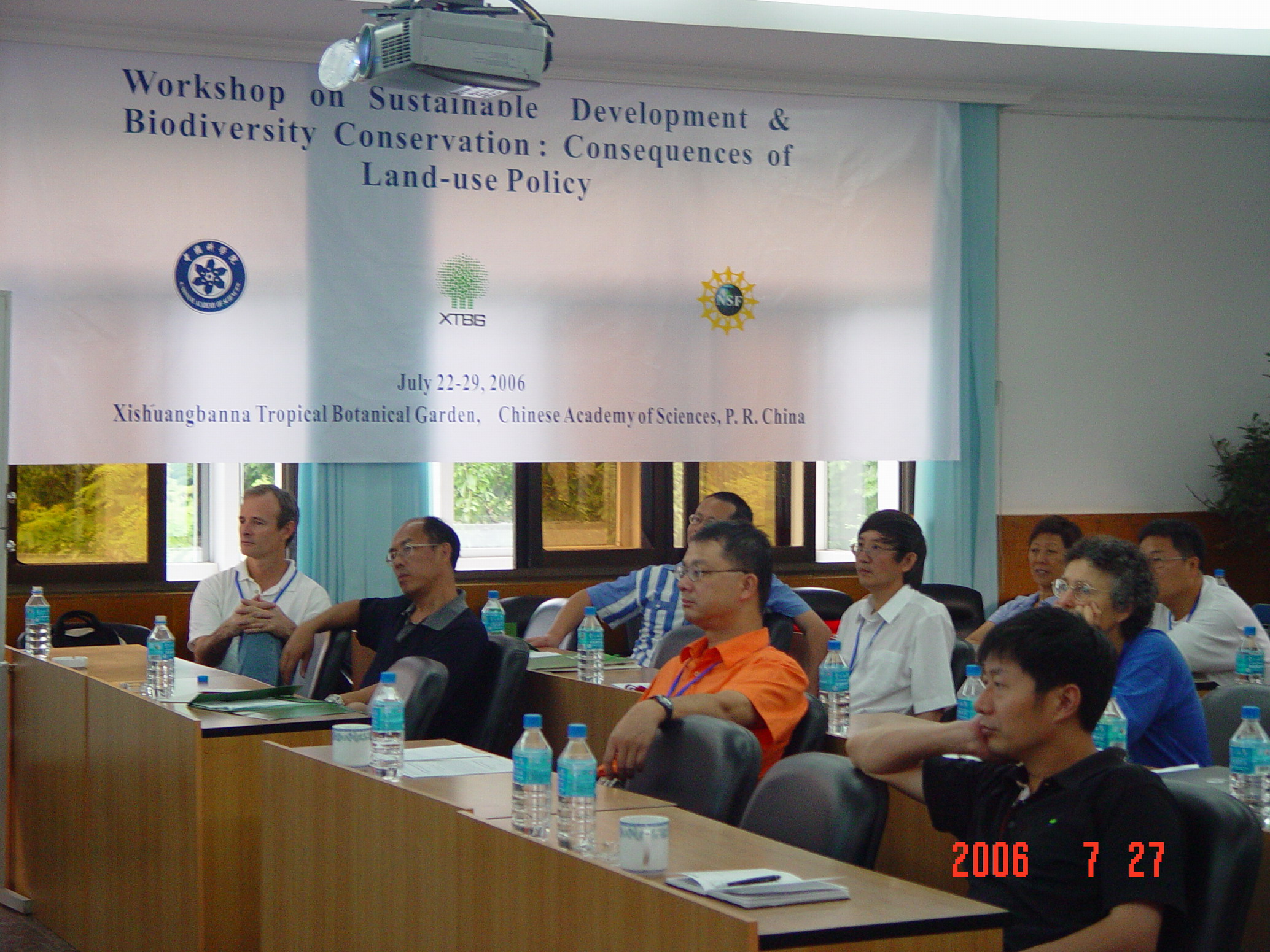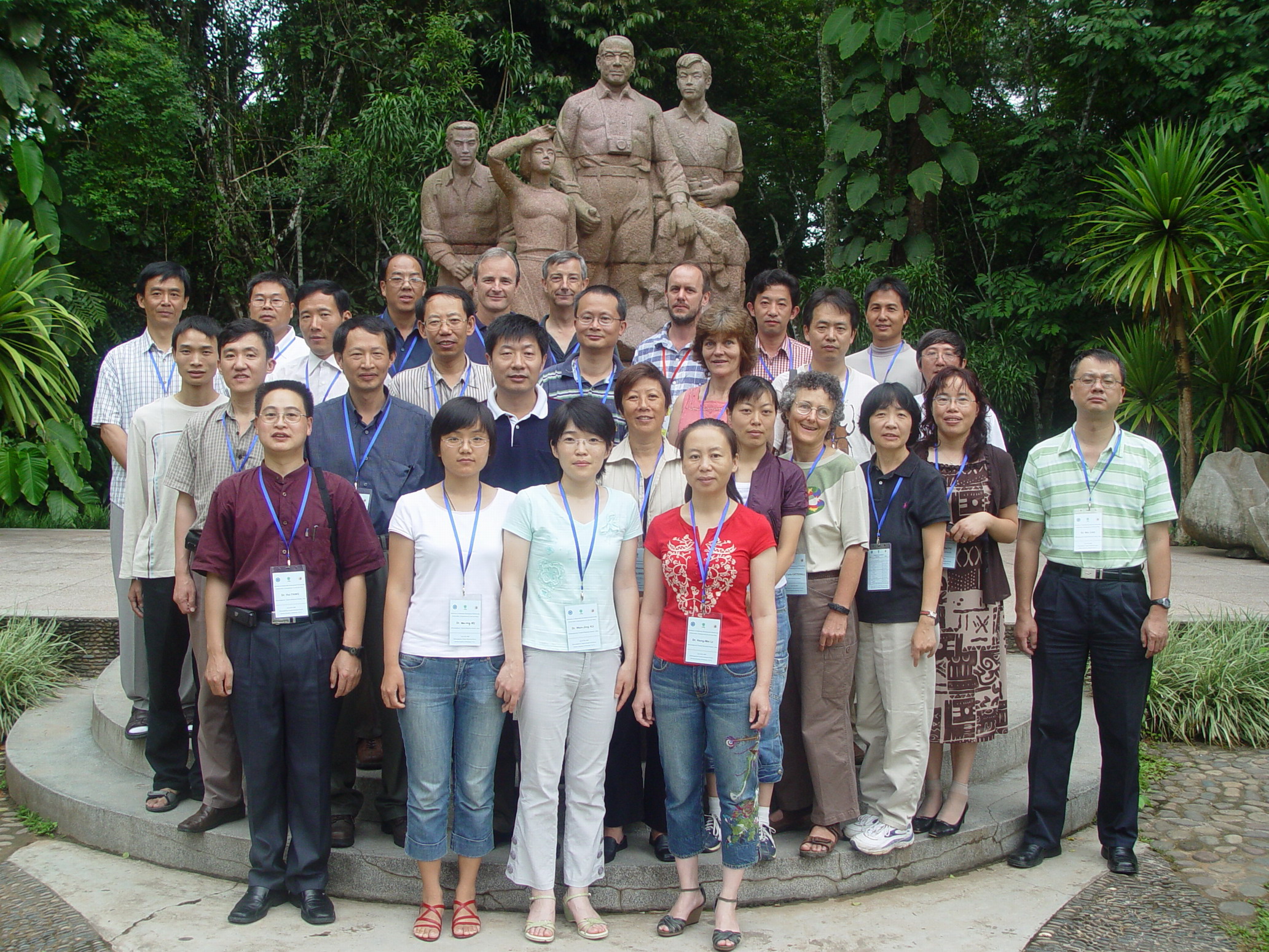During 22-29 July, the “International Workshop on Sustainable Development and Biodiversity Conservation: Consequences of Land-Use Policy” was held at XTBG. Hosted by XTBG, the workshop was attended by 20 more scholars of ecology, biology, economics, sociology and anthropology from China, USA, Canada and Australia. Dr. Chen Jin, director of XTBG, made welcoming remarks. Dr. Cao Min, deputy director of XTBG, participated and made report at the workshop.
From different subjects and points of view, the participants made general discussions on the consequences of land-use policy on sustainable development and biodiversity conservation. With regard to the development situation of rubber industry in Xishuangbanna, the participants agreed that the fast-increasing rubber plantation brings economic profits and employment opportunities to the local people. However, they doubted about the sustainability of the increase. What will the ever-increasing rubber plantation mean to the local environment, economy and social development?
After serious discussions, the participating scholars put forward some suggestions on the development of rubber industry in Xishuangbanna.
a. To diversify the local investment and economic structure. To plant more economic plants other than rubber.
b. The decision makers to play active role in plantation.
c. To make economic regulations aimed at sustainable use of local natural resources.
d. To preserve natural vegetation around the nature reserve.
e. To enhance the cooperation ties between the local government and research institutions, so as to increase the public awareness of natural preservation and sustainable development and promote social development.
The participants also discussed future cooperation and research orientations. They made a field tour to the Ailaoshan Forest Ecosystem Research Station as well.
The workshop was funded by American National Science Foundation (NSF) and the Chinese Academy of Sciences (CAS). The workshop fulfilled the agenda as scheduled and was a complete success.


|


